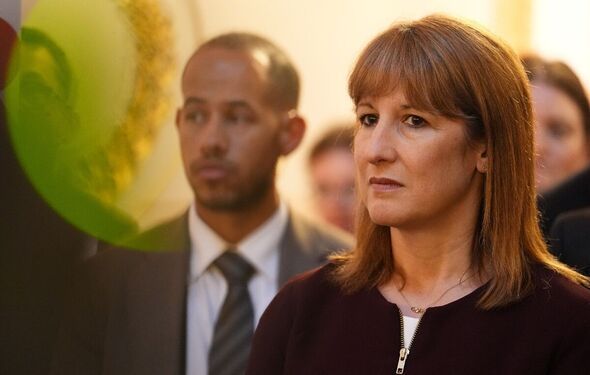

Rachel Reeves has been warned inflation and Labour's workers' rights bill threaten to push the UK into recession. AO World founder and CEO, John Roberts said Brits have lived through a few recessions in the past 25 years and in his view the UK is "heading into another one".
He said: "We have inflation coming through and we are now feeling that in the costs across businesses. Business leaders that I speak to are looking at how they can take people out."
Mr Roberts told the BBC that the wealthy are being driven out of Britain by the Government's increased tax squeezes. He also rejected plans for "day one" rights for workers under Labour's rights bill.
The electronics boss said: "We should be talking about job creation, not enforcing things that make business leaders think twice about recruiting people and about giving somebody a chance."
He accused Labour of "flip-flopping around and blowing in the wind" as he discussed Labour's failure to tackle the soaring cost of welfare.
His remarks came ahead of the Chancellor's second Budget on November 26 when Ms Reeves is expected to announce further tax rises as she seeks to fix Britain's public finances.
AO World's boss is the latest business figure to sound the alarm over Labour's handling of the economy.
Lord Simon Wolfson, the boss of retail giant Next, has warned the UK faces years of "anaemic growth", hampered by Labour's hiking of employers' National Insurance and rising unemployment, which he said was weighing on businesses and consumers.
The Organisation of Economic Co-operation and Development (OECD) said higher taxes and reduced government spending will weigh on the economy, with growth set to ease sharply from 1.4% this year to 1% in 2026.
OECD economists predict that UK inflation will surge, with Britain experiencing the highest level among the G7 group of advanced economies this year.
Inflation in Britain is expected to reach 3.5% this year, 0.4 percentage points higher than the OECD's previous forecast and still far above the Bank of England's target in 2026, at 2.7%.
While the OECD nudged up its 2025 forecast for UK gross domestic product (GDP) from the 1.3% it had predicted in June, it kept the outlook unchanged for 2026.
In its interim economic outlook, it said the UK would be held back by "a tighter fiscal stance, higher trade costs and uncertainty" which it said would "drag on external and domestic demand".
Meanwhile, the S&P Global flash UK composite purchasing managers' index (PMI) reported a reading of 51.0 for September, representing the weakest score for four months.
It dropped from a reading of 53.5 in August, which had been the strongest score for 12 months. Surveyed businesses reported subdued demand and pressure on margins as they faced increases in business costs.
The figures also highlighted another decrease in private sector employment, with firms reporting hiring freezes and decisions to not replace departing workers due to cost pressures.
Chris Williamson, Chief Business Economist at S&P Global Market Intelligence, said: "September's flash UK PMI survey brought a litany of worrying news including weakening growth, slumping overseas trade, worsening business confidence and further steep job losses."
He said weakening growth in business activity and around 50,000 job losses signalled by the PMI again in the three months to September meant alarm bells should be ringing that Britain's economy is faltering.
-
CM Himanta Biswa Sarma says BJP expects better BTC result than last time despite setbacks

-
Haryana CM Nayab Saini Unveils ₹2,100 Monthly Scheme For Women Under 'Deendayal Lado Lakshmi Yojana' - VIDEO

-
Bayern Munich set out Harry Kane transfer stance after Tottenham clause claim

-
Land-for-jobs case: CBI opposes Lalu's plea to quash FIR

-
Delhi CM launches 11 CATS ambulances, organ donation portal
